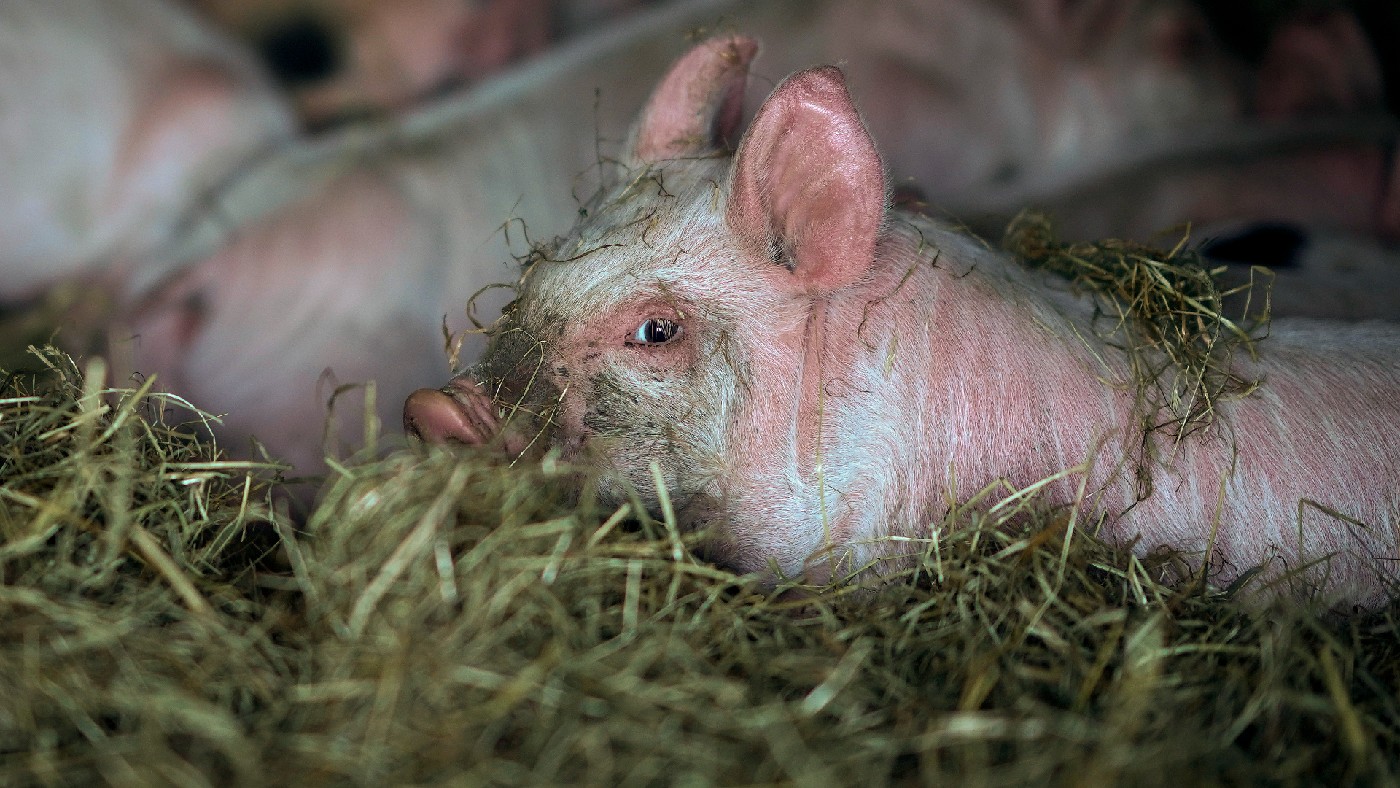Gaps on supermarket shelves, stranded pigs and labour shortages: Britain’s supply chain crisis explained
Stocks in shops and warehouses have slumped to their lowest levels since 1983

A free daily email with the biggest news stories of the day – and the best features from TheWeek.com
You are now subscribed
Your newsletter sign-up was successful
“Gaps on supermarket shelves. Fast food outlets pulling milkshakes and bottled drinks from their menus. Restaurants running out of chicken and closing.” These are only the most visible signs of “Britain’s deepening supply chain crisis”, said Tom Wall and Phillip Inman in The Observer.
Stocks in shops and warehouses have slumped to their lowest levels since 1983. Some 70,000 pigs are stranded on farms because there isn’t the capacity to transport and process them. The primary reason for all this is an estimated 100,000 shortfall in the number of UK lorry drivers needed to get goods and materials moving. That’s partly because 14,000 EU drivers have left the country since Brexit, and only 600 have returned.
Meanwhile, the pandemic has prevented new drivers from filling the vacancies: around 40,000 HGV tests were cancelled last year. Union officials, however, describe these issues as just the final straw: for decades, they say, lorry drivers have been undervalued, underpaid and treated with disdain.
The Week
Escape your echo chamber. Get the facts behind the news, plus analysis from multiple perspectives.

Sign up for The Week's Free Newsletters
From our morning news briefing to a weekly Good News Newsletter, get the best of The Week delivered directly to your inbox.
From our morning news briefing to a weekly Good News Newsletter, get the best of The Week delivered directly to your inbox.
It’s time that attitude changed, said Dominic Lawson in the Daily Mail. You might not need a degree for lorry driving, but the hours are punishing, and it demands “enormous levels of sustained concentration”. After all, “the slightest lapse could be fatal”.
Thankfully, the national shortage of qualified drivers has finally brought some respect for this “vital role”. Waitrose is now offering up to £53,780 a year to Large Goods Vehicle drivers, more than its parent company John Lewis is offering for some white-collar jobs such as pensions specialists or finance analysts.
But the supply chain problem goes well beyond lorry drivers, said the FT: there are labour shortages throughout food production, distribution, hospitality and construction. Across the EU and the US, companies are finding that the speed of reopening, rehiring and restocking after long lockdowns has also created similar “worker shortages”.
Yes, the UK’s situation has been exacerbated by the flight of EU workers after Brexit, but filling those vacancies long-term will depend on better training, pay and conditions for UK workers – or “levelling up”, as the Government might say.
A free daily email with the biggest news stories of the day – and the best features from TheWeek.com
“We’re not used to modern capitalism being a mess,” said Torsten Bell in The Observer. And fixing it is going to be a “bumpy” process. We’ll have to talk openly about how we want our economy to work. Some sectors have got used to low-paid migrant labour: almost half of those in food manufacturing are foreign-born. We’ll have to pay more to fill those jobs – meaning higher prices – or we’ll have to accept “lower levels of output”, and import more food.
Either way, this is dangerous territory for the Government, said Chris Stevenson in The Independent. Voters react most strongly to crises that hit them in their homes, and shortages in the run-up to Christmas would be a political nightmare. Answers will be expected: “Johnson & Co. will have to provide them pretty swiftly.”
-
 ‘Those rights don’t exist to protect criminals’
‘Those rights don’t exist to protect criminals’Instant Opinion Opinion, comment and editorials of the day
-
 Key Bangladesh election returns old guard to power
Key Bangladesh election returns old guard to powerSpeed Read The Bangladesh Nationalist Party claimed a decisive victory
-
 Judge blocks Hegseth from punishing Kelly over video
Judge blocks Hegseth from punishing Kelly over videoSpeed Read Defense Secretary Pete Hegseth pushed for the senator to be demoted over a video in which he reminds military officials they should refuse illegal orders
-
 Currencies: Why Trump wants a weak dollar
Currencies: Why Trump wants a weak dollarFeature The dollar has fallen 12% since Trump took office
-
 Elon Musk’s starry mega-merger
Elon Musk’s starry mega-mergerTalking Point SpaceX founder is promising investors a rocket trip to the future – and a sprawling conglomerate to boot
-
 TikTok: New owners, same risks
TikTok: New owners, same risksFeature What are Larry Ellison’s plans for TikTok US?
-
 Will SpaceX, OpenAI and Anthropic make 2026 the year of mega tech listings?
Will SpaceX, OpenAI and Anthropic make 2026 the year of mega tech listings?In Depth SpaceX float may come as soon as this year, and would be the largest IPO in history
-
 Leadership: A conspicuous silence from CEOs
Leadership: A conspicuous silence from CEOsFeature CEOs were more vocal during Trump’s first term
-
 Ryanair/SpaceX: could Musk really buy the airline?
Ryanair/SpaceX: could Musk really buy the airline?Talking Point Irish budget carrier has become embroiled in unlikely feud with the world’s wealthiest man
-
 Powell: The Fed’s last hope?
Powell: The Fed’s last hope?Feature Federal Reserve Chairman Jerome Powell fights back against President Trump's claims
-
 Taxes: It’s California vs. the billionaires
Taxes: It’s California vs. the billionairesFeature Larry Page and Peter Thiel may take their wealth elsewhere